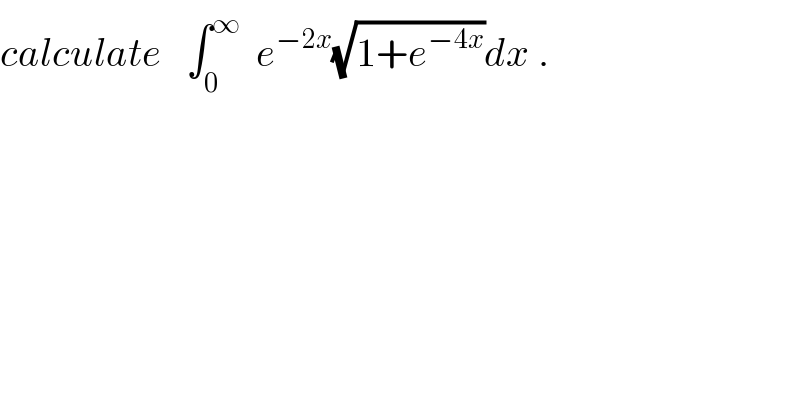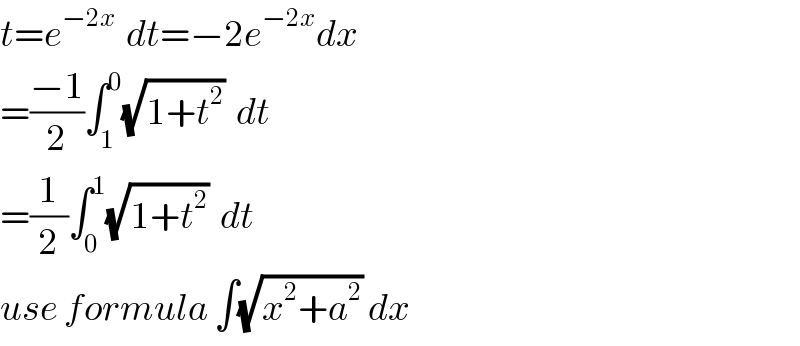
Question and Answers Forum
Question Number 38126 by maxmathsup by imad last updated on 22/Jun/18

Commented by math khazana by abdo last updated on 26/Jun/18
![let I = ∫_0 ^∞ e^(−2x) (√(1+e^(−4x) ))dx changement e^(−2x) =t give −2x =ln(t)and I = −∫_0 ^1 t(√(1+t^2 ))((−dt)/(2t)) =(1/2) ∫_0 ^1 (√(1+t^2 ))dt 2I =_(t=sh(u)) ∫_0 ^(ln(1 +(√2))) ch(t)ch(t)dt =(1/2) ∫_0 ^(ln(1+(√2))) (1+ch(2t))dt =((ln(1+(√2)))/2) +(1/4) [sh(2t)]_0 ^(ln(1+(√2))) =((ln(1+(√2)))/2) +(1/4)sh(2ln(1+(√2))) =((ln(1+(√2))/2) +(1/8){(1+(√2))^2 −(1+(√2))^(−2) } .](Q38505.png)
Commented by math khazana by abdo last updated on 26/Jun/18

Answered by tanmay.chaudhury50@gmail.com last updated on 22/Jun/18

Commented by tanmay.chaudhury50@gmail.com last updated on 22/Jun/18

